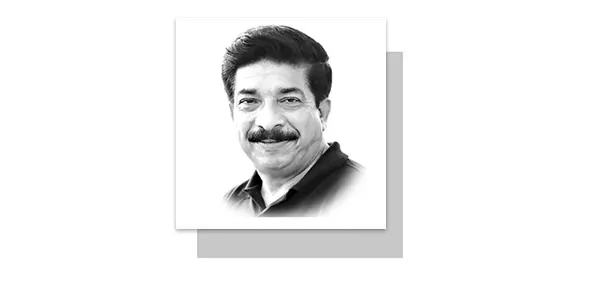THE latest coup episode in Niger, unfurled on July 26, marks the seventh convulsion of its kind across West Africa in a span of three years. However, the repercussions of this domestic upheaval have rippled beyond the region, casting deep shadows over Western interests. Notably, the cascade of events following the putsch harshly mirrors the trajectories witnessed in Mali and Burkina Faso recently. The backdrop of the current episode reveals protracted tensions between Niger’s President, Mohamed Bazoum and the coup conductor Abdourahamane “Omar” Tchiani – both frontline players in Mahamadou Issoufou’s presidential regime from 2011 to 2021. Bazoum’s plan to replace General Abdourahmane Tchiani, the head of the presidential guard, seems to have set things in motion.
The subsequent day, instead of supporting him, the military rallied behind the emerging junta, aiming to prevent a potentially lethal showdown among different factions that could escalate into a catastrophic conflict. Niger’s recent coup adds to the cascade of upheavals sweeping the Sahelian Belt since the Sudanese Armed Forces ousted Omar al-Bashir in 2019. A chain of military regimes now holds sway across countries, forming a contiguous expanse from the Atlantic to the Red Sea. The region has witnessed a series of botched coup attempts in the recent past. This tableau underscores the waning of Western influence and the failure of multilateral engagement to counter the region’s deteriorating political and security landscape.
Niger’s geopolitical significance fuels two key trends in the escalating crisis. First, it could evolve into a broader West African conflict, even deemed ‘Africa’s world war.’ Second, Niger’s Sahel location holds pivotal relevance, not just for regional extremism but also within a continent now a global hotspot for terrorism and religious extremism. Bazoum’s gambit to defuse the Tchiani threat included plans to remove him and slash the presidential guard’s budget.
Simultaneously, Bazoum boosted overall military spending, aiming to counter Niger’s pressing terrorism challenges and to garner military support elsewhere. But despite this move, the military aligned with the coup plotters. Echoing a familiar West African junta playbook, the putschists justified their action, planning to prosecute Bazoum for treason. Many countries including France, the United States and regional bodies such as Economic Community of West African States (ECOWAS) and the African Union (AU), exhibited stern responses towards the coup’s orchestrators. France and ECOWAS explicitly called for the prompt release of Bazoum and a swift return to constitutional norms, cautioning against potential military intervention. The coup’s underpinnings reveal a complex interplay of domestic and international factors, adding to the intricate tapestry of this unfolding drama.
The junta’s anti-Western sentiment intensified, encompassing anti-French, anti-ECOWAS demonstrations, a strike at the French embassy and showcasing pro-Russia emblems. Spearheaded by Nigeria, the ECOWAS propelled itself into the spotlight with a theatrical threat of military intervention, designed to oust the junta if it clung to power beyond August 6. But this deadline passed without any whiff. Only Senegal, Côte d’Ivoire and Benin committed troops for a Nigeria-led anti-junta endeavour. Meanwhile, Mali, Burkina Faso and Guinea – all junta-led ECOWAS members – rallied behind Niger’s junta, even vowing to treat any action against it as a war on themselves.
However, in a face-saving effort, ECOWAS slapped tough economic sanctions on Niger. Nigeria cut off electricity supply to Niger. Amidst this, France and the EU halted economic aid, totaling $554 million. France also paused military operations. In response, the Biden administration also decried Niger’s power seizure, threatened U.S. aid withdrawal if constitutional order was not reinstated and demanded Bazoum’s immediate release. Yet, the White House has tactfully avoided the term “coup”, allowing room to stave off sanctions that could jeopardize counterterrorism efforts. The problem with the US is that, besides combating ISIS- and Al-Qaeda-linked groups through its 1,000 troops there, the U.S. is running a vital counterterrorism drone hub in Niger. That is why, Washington is seeking a diplomatic resolution to evade extensive sanctions and troop withdrawal.
Despite the looming specter of severe humanitarian and economic fallout, the junta is unlikely to yield to sanctions in the near future. In a conceivable twist, Niger’s junta could forge a deeper tie with Wagner mercenaries, providing lasting support amid potential military action. This has gained relevance as ECOWAS’ August 6th deadline for Bazoum’s return lapsed without compliance. The current landscape is synonymous with instability, revealing the junta’s struggle to firmly secure control. There is a fertile ground for insurgencies such as Al-Qaeda, Boko Haram and other armed factions. They could exploit the turmoil, leading to heightened violence that might extend beyond Niger’s borders, compounding the challenges in neighbouring regions.
A range of pathways could be possible. The Nigerian junta might navigate intricate internal talks with civilian figures, possibly involving former President Mahamadou Issoufou or Bazoum’s rivals. Deliberations could easily stall, with the junta manipulating local politicians to stave off relinquishing power, reminiscent of Sudan’s convoluted political dynamics. The second option is the establishment of a collaborative transition government could materialize, uniting the junta with a civilian leader other than Bazoum, such as Issoufou. Promising upcoming elections, the government might later prolong its rule when the voting timeline nears, mirroring the strategies seen in Mali, Chad and Sudan. And, as a third scenario, the junta could opt for a straightforward approach, pledging elections within a year without forming an interim civilian coalition.
Central Sahel’s neighbouring governments might sway towards military juntas or succumb to state collapse. Sanctions’ socioeconomic aftermath, reminiscent of the Western playbook post-Putin’s Ukrainian incursion, threatens Nigeriens’ well-being. The juncture nurtures a dichotomy: a populace yearning for change, juxtaposed with those favouring the prevailing junta, potentially sparking military interventions with external actors like Wagner mercenaries and foreign forces. Amid a tenuous military regime, Niger could evolve into an extremism hub. This could arise from Western powers pursuing neo-colonialist agendas or, inversely, the absence of Western troops creating a void exploited by entities seeking to establish operational bases.
—The writer is political analyst, based in Karachi.
Email: [email protected]










